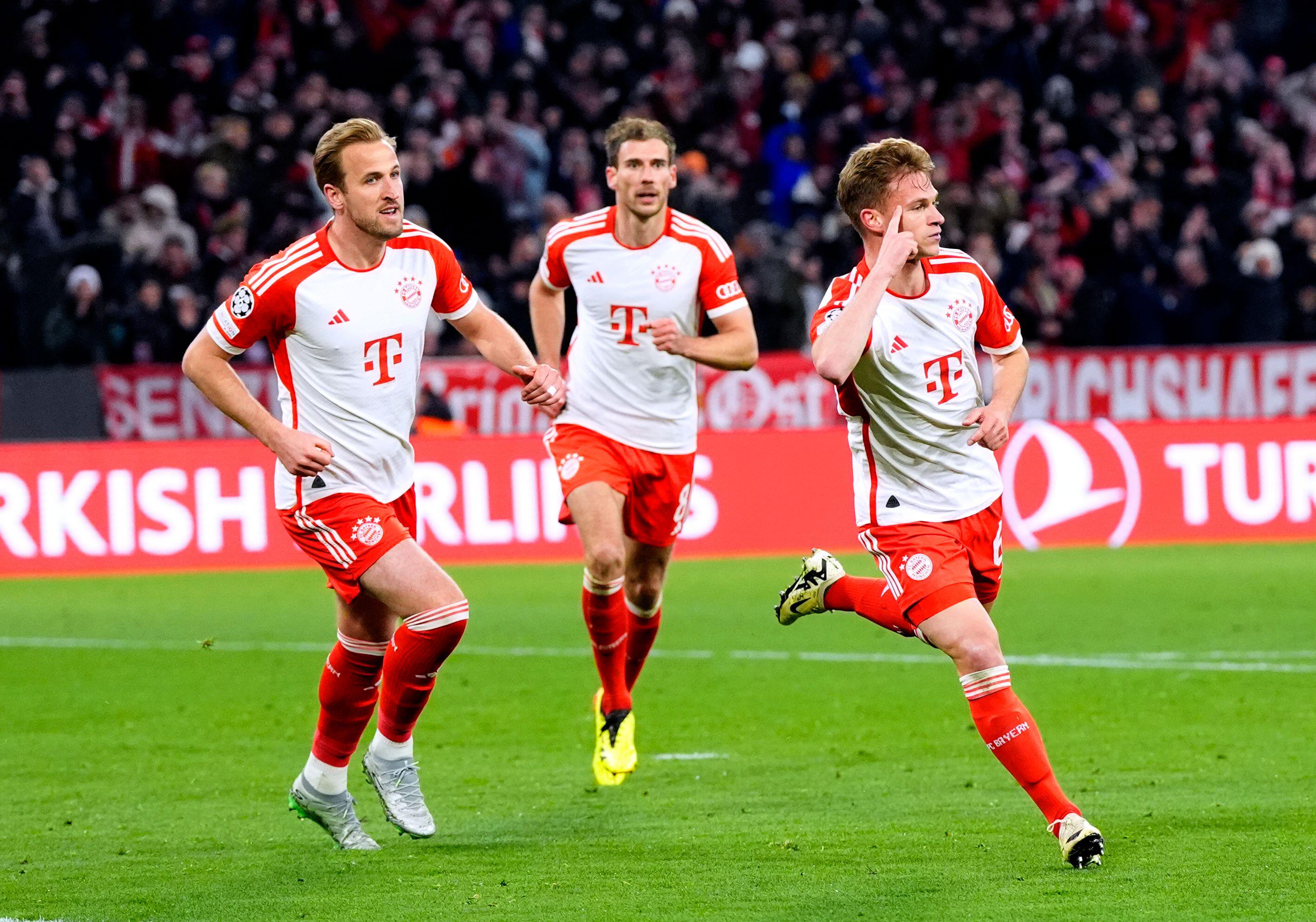How the controversial new Champions League format will actually IMPROVE European football
It's all change in the Champions League – and beyond – for the 2024/25 season, but it's not nearly as bad as people think

The best features, fun and footballing quizzes, straight to your inbox every week.
You are now subscribed
Your newsletter sign-up was successful
Want to add more newsletters?

Five times a week
FourFourTwo Daily
Fantastic football content straight to your inbox! From the latest transfer news, quizzes, videos, features and interviews with the biggest names in the game, plus lots more.

Once a week
...And it’s LIVE!
Sign up to our FREE live football newsletter, tracking all of the biggest games available to watch on the device of your choice. Never miss a kick-off!
Join the club
Get full access to premium articles, exclusive features and a growing list of member rewards.
The new Champions League format has not proved universally popular. In fact, among fans at least, the overwhelming consensus seems to be it's a terrible idea – a financially motivated move by UEFA; a back door to a European Super League, even.
From this season, there is no more Champions League group stage. Instead, UEFA have adopted the 'Swiss model', an ostensibly complicated first phase of the competition in which all 36 teams (yep, four more than before) form one big league table.
It'll take some getting used to, for sure – it's the biggest shake-up to Europe's top club competition since the scrapping of the old second group stage in 2003 – and not all change is good. This one is, though...
WATCH | How The New Champions League Format Actually Works
Increased jeopardy

Under the old first-round format of eight groups of four teams, dead rubbers were something of an inevitability. On the sixth and final matchday of the 2023/24 group stage, for example, six of the eight groups saw at least one game between two teams whose fates – whether progression to the last 16, a drop into the Europa League knockout round play-offs or outright elimination – were already decided, while a number of other fixtures featured one side with effectively nothing to play for.
With the introduction of the new format, that shouldn't happen – not to such a degree, anyway. There are no longer any second chances in the Champions League: once you're out of the competition, that's it – no Europa League reprieve.
Granted, 'rewarding' third-place group finishers with a spot in UEFA's second-tier competition (or, in recent years, a spot in the play-offs for the last 16 of that competition) kept things interesting for longer – much like the play-offs do in the EFL, for example – but one could argue that giving teams such a safety net in a short format (six games) diluted the jeopardy that brings so much excitement and tension to tournament football. The new format – whereby the top eight sides advance automatically to the last 16, the next 16 go into a play-off round and only the remaining eight exit – ought to increase that all-important jeopardy.
The best features, fun and footballing quizzes, straight to your inbox every week.
Variety: the spice of football

Another plus of the rejigged Champions League format is that every team – even those seeded highest – is guaranteed at least two 'tests' in the first phase of the competition. Each side has been drawn against two opponents from each of the four pots, with Pot 1 containing holders Real Madrid, Manchester City, Bayern Munich, PSG, Liverpool, Inter, Borussia Dortmund, RB Leipzig and Barcelona.
Thursday's draw (which was conducted by computer rather than people (after UEFA found that it would take as long as four hours to do it the old-fashioned way) threw up some cracking fixtures for all teams involved. Real's eight league phase fixtures include clashes with Dortmund, who they beat in last season's final, Liverpool, Milan and 2023/24 Europa League winners Atalanta; City will take on Inter, PSG and Juventus; and Brest face Real, Barcelona and Bayer Leverkusen on their European debut.
Instead of playing three opponents twice each (once at home and once on the road) every side in the Champions League now contests eight first-round matches (four home, four away) against eight different teams, giving the early competition something of an expanded World Cup (or, maybe more appropriately given the region, Euros) feel. Variety is the spice of life and all that.
For the greater good

The new Champions League format doesn't just impact the UCL itself; it also has an effect on the Europa League and Conference League. And it seems like a positive effect.
With teams who don't reach the Champions League knockout stage no longer dropping into the Europa League, the winner of the latter will have to have been in the competition from the outset. It always felt a touch unfair that an ostensibly stronger side could enter the Europa League late and go on to lift the trophy – as happened on nine occasions, most recently with Sevilla in 2023 – but that's no longer a possibility.
Exactly the same change applies to the Conference League from 2024/25, too. Europe's three major club competitions are fully distinct for the first time since the late 90s (when you had the Cup Winners' Cup rather than the Conference League – the latter being a very new tournament, of course) – and they should all be better off because of it.
More Champions League stories
NEW UCL FORMAT Everything you need to know
CLIVE TYLDESLEY Commentary legend relives Manchester United's famous 1999 win
QUIZ! Can you name every stadium to have hosted the Champions League final?
Tom Hancock started freelancing for FourFourTwo in April 2019 and has also written for the Premier League and Opta Analyst, among others. He supports Wycombe Wanderers and has a soft spot for Wealdstone. A self-confessed statto, he has been known to watch football with a spreadsheet (or several) open...
 Join The Club
Join The Club











